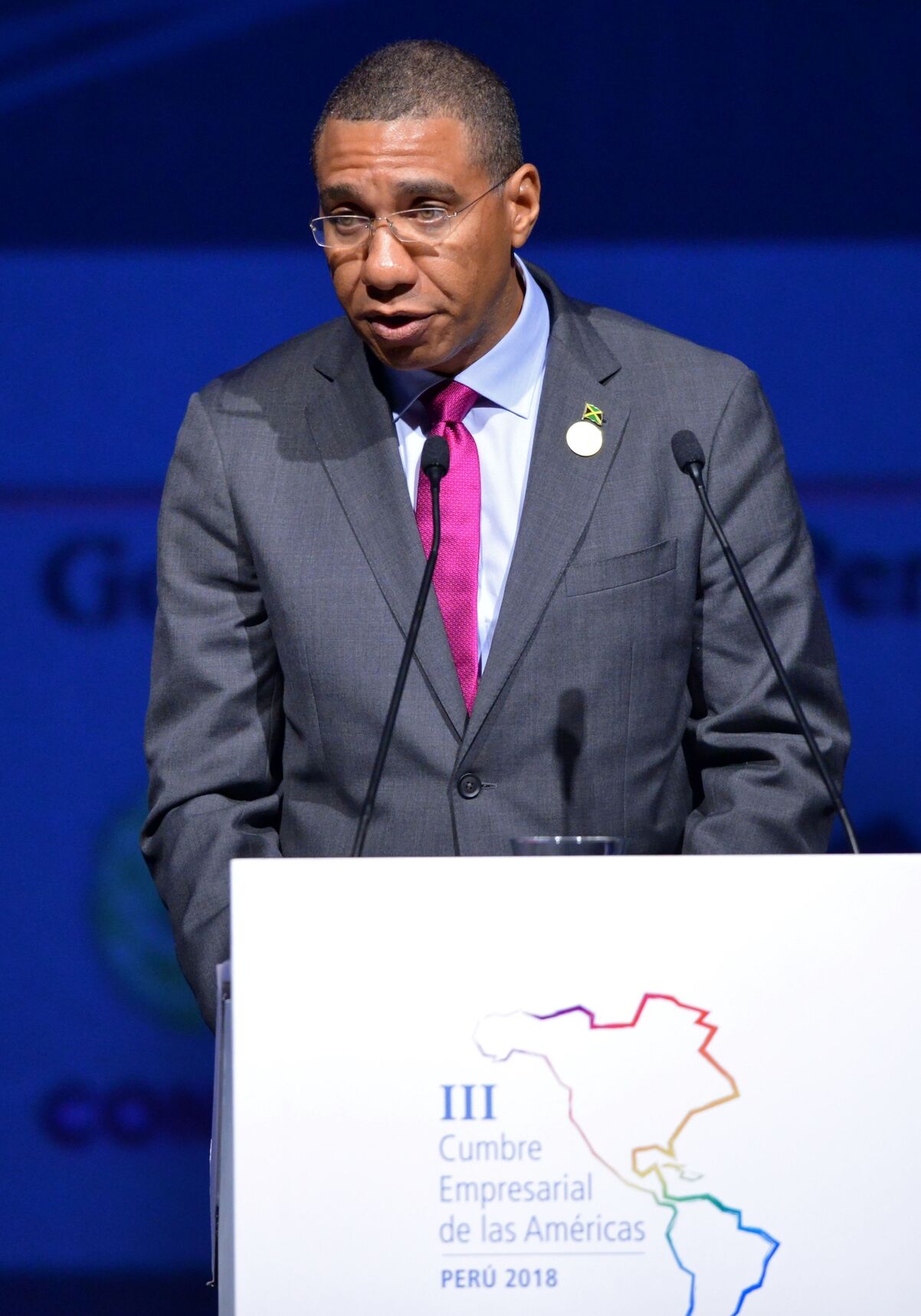Jamaica’s Prime Minister urged patience from the international community as the island nation “evolves” on LGBTQ rights during a Sunday press conference.
In a meeting with members of Jamaica’s diaspora community, PM Andrew Holness said the country is making strides toward accepting queer and trans people, who have long faced extreme marginalization in a country where they are at disproportionate risk for violence.
“The culture is evolving,” Holness claimed, in an address first reported by Jamaica News Online. “The people are evolving.”
“Even in the church which 10 years ago had a unified position [against homosexuality],” he added, responding to a question from those gathered. “The church in Jamaica now has multiple positions on the issue. I think Jamaica ought to be given space to find its own solution to the problem.”
Indeed, there have been signs in the past few years that some religious leaderswho have long been at the forefront of promulgating anti-LGBTQ hate in Jamaicahave been willing to soften their stances.
Head of the Jamaica’s Anglican Church Bishop Howard Gregory called for the decriminalization of homosexuality in a 2017 letter to parliament which argued that “what happens in privacy between consenting adults should be beyond the purview of the government.”
Currently, Jamaica has on the books some of the world’s most imperious anti-LGBTQ laws. A guilty sentence for those convicted of homosexuality results in 10 years of forced labor under Section 76 of Jamaica’s Offenses Against the Person Act of 1864. The law, like many codes criminalizing sodomy in developing nations, is a remnant of the colonial era.
Holness said it will take time for Jamaica, which only became independent from the U.K. in 1962, to catch up to other nations.
“Jamaica is going through its own processjust as Europe did 50 years ago and some probably 20 years ago or more recent than that,” the prime minister claimed. “And it can be very frustrating for Jamaicans to understand what is happeningto feel a little bit targeted sometimes.”
The nation, however, has a great deal of work ahead if Holness hopes to advance LGBTQ rights in a country where 80 percent of residents believe queerness is “immoral.”
LGBTQ leader Dexter Pottinger was murdered in his Kingston home in August 2017 as he screamed for help. Although local advocates urged observers not to assume his sexuality was the cause of his death, his killing followed a number of high profile murders of queer and transgender people.
The slaying of trans homeless youth Dwayne Jonesbeaten, shot, and stabbed to deathsparked international outcry five years ago. Jones, just 16, was killed by a mob of men for wearing a dress.
Between the years of 1997 and 2004, at least 30 gay men were murdered on the island.
Last year Holness called for the anti-sodomy laws to be struck downwhich increase stigma and fear of LGBTQ people. He signaled the willingness to put the issue up to a voter referendum following an “extended period of public education.” Currently, 80 percent of residents believe queerness is “immoral.”
“Governments have to take the right time to do things,” he said. “Trying to address issues that you put through a referendum, that doesn’t happen overnight, and if it is not properly planned, if the populace is not properly educated, and if the political climate is not right, then the outcome that you would want might not be the outcome that you would get.”
The effort is “not something that you could do within a year,” the prime minister added.
As neighboring Trinidad and Tobago strike down their sodomy laws, Holness did not return to his prior calls to legalize same-sex intercourse. He did, however, say that Jamaica is ready to have an openly LGBTQ official serve in the Cabinet.
“[A] person’s sexuality or sexual orientation is not a criteria for the use of my discretion,” he claimed.
Photo via Luka Gonzales/Getty Images
Don't forget to share:
Help make sure LGBTQ+ stories are being told...
We can't rely on mainstream media to tell our stories. That's why we don't lock our articles behind a paywall. Will you support our mission with a contribution today?
Cancel anytime · Proudly LGBTQ+ owned and operated
Read More in Impact
The Latest on INTO
Subscribe to get a twice-weekly dose of queer news, updates, and insights from the INTO team.
in Your Inbox













